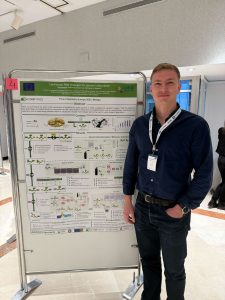 We bid farewell to Florian Barbaz, a PhD student in the D-Carbonize MSCA network, who has been an integral part of our team at the Center for Integrated Technology and Organic Synthesis.
We bid farewell to Florian Barbaz, a PhD student in the D-Carbonize MSCA network, who has been an integral part of our team at the Center for Integrated Technology and Organic Synthesis.
During his time here, Florian focused on the valorization of biobased glycerol, a waste stream from biodiesel production. Using continuous flow chemistry, he developed scalable methods for key transformations such as hydrochlorination, dechlorination, aminolysis, and oxazolidinone synthesis. His work contributes to more sustainable chemical manufacturing – and exciting publications are on the way.
Florian now continues his PhD with a three-month secondment with our partners at Corning (Avon, France), followed by a stay at the University of Groningen in the group of Prof. Paolo Pescarmona.
We thank him for his excellent work and collaborative spirit, and wish him all the best in the next steps of his journey!

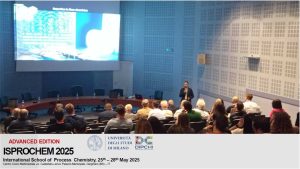
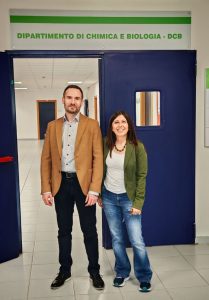 As part of an ErasmusPlus academic stay, Professor Jean-Christophe Monbaliu recently visited the Università degli Studi di Salerno, where he delivered an introductory course on flow chemistry. The course, designed to provide a comprehensive foundation in continuous flow technology for organic synthesis, was refined thanks to the contributions of Elyse Macors and Diana V. Silva-Brenes.
As part of an ErasmusPlus academic stay, Professor Jean-Christophe Monbaliu recently visited the Università degli Studi di Salerno, where he delivered an introductory course on flow chemistry. The course, designed to provide a comprehensive foundation in continuous flow technology for organic synthesis, was refined thanks to the contributions of Elyse Macors and Diana V. Silva-Brenes.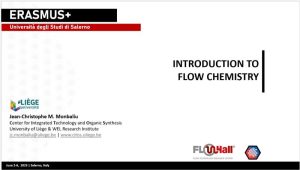
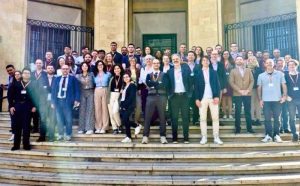 We are proud to share that our very own Jean-Christophe Monbaliu had the honor of delivering a plenary lecture at the third edition of the Italian Flow Chemistry Symposium, held on May 8–9, 2025, in the beautiful coastal city of Bari. The conference brought together leading minds in flow chemistry, and the scenic backdrop of Puglia provided the perfect setting for two days of cutting-edge scientific exchange.
We are proud to share that our very own Jean-Christophe Monbaliu had the honor of delivering a plenary lecture at the third edition of the Italian Flow Chemistry Symposium, held on May 8–9, 2025, in the beautiful coastal city of Bari. The conference brought together leading minds in flow chemistry, and the scenic backdrop of Puglia provided the perfect setting for two days of cutting-edge scientific exchange.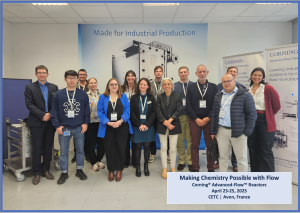 Last week, Elyse, Florian, and Diana had the pleasure of representing the CITOS team at the April 2025 edition of the Corning Flow Chemistry Workshop, held in Avon, France. This immersive, hands-on event provided a unique opportunity to deepen our knowledge of Corning’s advanced flow technology platforms and to reconnect with long-standing partners and collaborators.
Last week, Elyse, Florian, and Diana had the pleasure of representing the CITOS team at the April 2025 edition of the Corning Flow Chemistry Workshop, held in Avon, France. This immersive, hands-on event provided a unique opportunity to deepen our knowledge of Corning’s advanced flow technology platforms and to reconnect with long-standing partners and collaborators.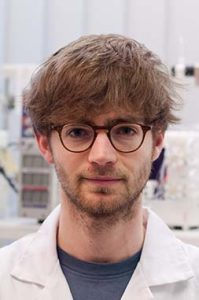
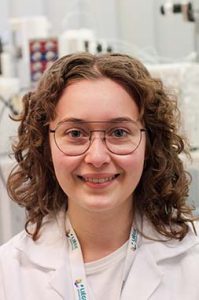
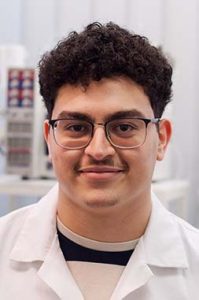
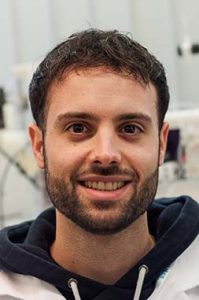 This spring, we are delighted to host two PhD interns from Italy who are joining CiTOS for a research stay focused on tackling complex synthetic challenges using continuous flow chemistry. Please join us in welcoming Davide Gariboldiand Luca Di Marino!
This spring, we are delighted to host two PhD interns from Italy who are joining CiTOS for a research stay focused on tackling complex synthetic challenges using continuous flow chemistry. Please join us in welcoming Davide Gariboldiand Luca Di Marino!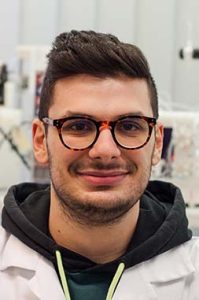
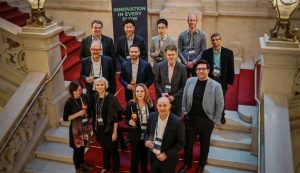
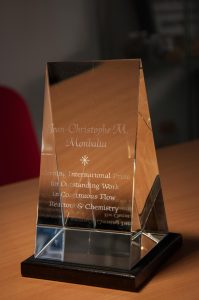 Congratulations to Jean-Christophe Monbaliu on the official reception of the Corning International Prize for Outstanding Work in Continuous Flow Reactors & Chemistry. We are especially grateful to have had the honor to host Jiang, Yi, GM of global AFR & AFPT and Basile Giese, PLM & regional commercial director AFR & AFPT, at the University of Liège last week to personally deliver the Corning International Award. The award is beautifully crafted by Steuben Glass LLC in the purest form of glass. Corning’s support has been crucial to the CiTOS’ growth and its impact in research, education and outreach. We hope the entire community will join us in celebrating this great event and look forward to the exciting flow chemistry road ahead
Congratulations to Jean-Christophe Monbaliu on the official reception of the Corning International Prize for Outstanding Work in Continuous Flow Reactors & Chemistry. We are especially grateful to have had the honor to host Jiang, Yi, GM of global AFR & AFPT and Basile Giese, PLM & regional commercial director AFR & AFPT, at the University of Liège last week to personally deliver the Corning International Award. The award is beautifully crafted by Steuben Glass LLC in the purest form of glass. Corning’s support has been crucial to the CiTOS’ growth and its impact in research, education and outreach. We hope the entire community will join us in celebrating this great event and look forward to the exciting flow chemistry road ahead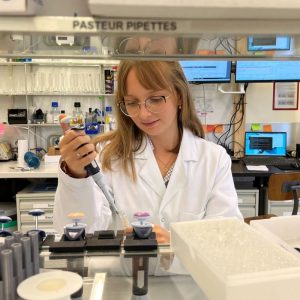 student at CiTOS!
student at CiTOS!